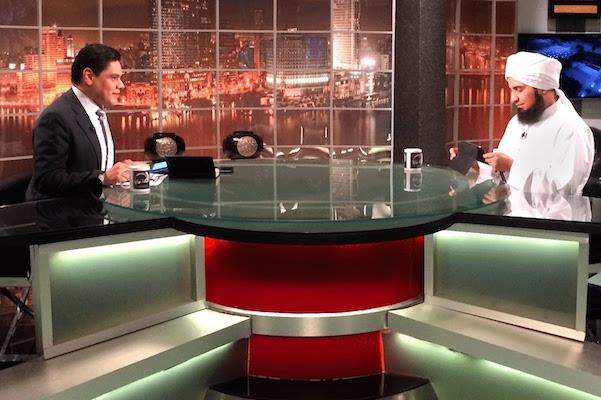
403
Sorry!!
Error! We're sorry, but the page you were looking for doesn't exist.
The Perils of Media Islam
(MENAFN- Morocco World News) Contemporary media Islam has invented a new religious public sphere beyond governmental control across national borders, located in cyber spaces and on satellite channels. It is a transnational 'mediascape' propagating an opinion Islam without identity and culture. Opposite to cultural Islam that emanates from the living experience of societies with proportionally state-controlled fixed authoritative centres of morality, media Islam is delocalized and decentred between Paris, London, Los Angeles and Dubai with entrepreneurial organizations commoditizing the doctrinaire discourse and practical discussion of religious celebrities such as Amr Khaled, Mohammed Hassan, Rachid al-Afasy, Moez Masoud and other televangelists. Satellite television and the internet are becoming fertile public spheres where not only old religious meanings are impoverished and deformed but also new Islamic meanings are introduced and mediated transnationally. This delocalisation of Islamic authority beyond the traditional sources of state is generating new producers and locales of religious meaning. Thus, Muslim subjectivity turns into a networked terminal paying allegiance to a simulated reality, being the outcome of the impact of media technologies. Local subjectivities may be relativised as a consequence of the emergence of cosmopolitan diasporic transnational Muslim subjectivities. The moral crisis media Islam generates is the retribalization of Islamic communities from local nationalism to a new form of religious transnationalism based on the concept of umma, the imagined holistic community of Islam, which devalues the importance of national loyalties and manures the ground for religious resistance and potential local civil disorder. The cost may get higher if the Muslim networked terminal identity catches signals from the carefully-built persuasive Jihadists’ discourse dispersed via blogs and websites online. Wandering across satellite channels and cyber networks, local Muslims may transfer their sense of belonging to virtual communities online or satellite stations broadcasting variable cocktails of religious ideologies. In short, state control of local Islamic worship is bound to herald its demise owing to the delocalization of central religious authority, and frantic competition between virtual preachers across the Islamic World to gain audience’s support; modern youth citizens are inclined via technological determinism to adhere to imams rooted on TV screens or lurking in remote websites. Hence, the risk of a crisis of national identity and sense of belonging to a mother-nation, especially if we keep betting on religious ties alone to culturalize citizenship. The views expressed in this article are the author's own and do not necessarily reflect Morocco World News' editorial policy

Legal Disclaimer:
MENAFN provides the
information “as is” without warranty of any kind. We do not accept
any responsibility or liability for the accuracy, content, images,
videos, licenses, completeness, legality, or reliability of the information
contained in this article. If you have any complaints or copyright
issues related to this article, kindly contact the provider above.















Comments
No comment